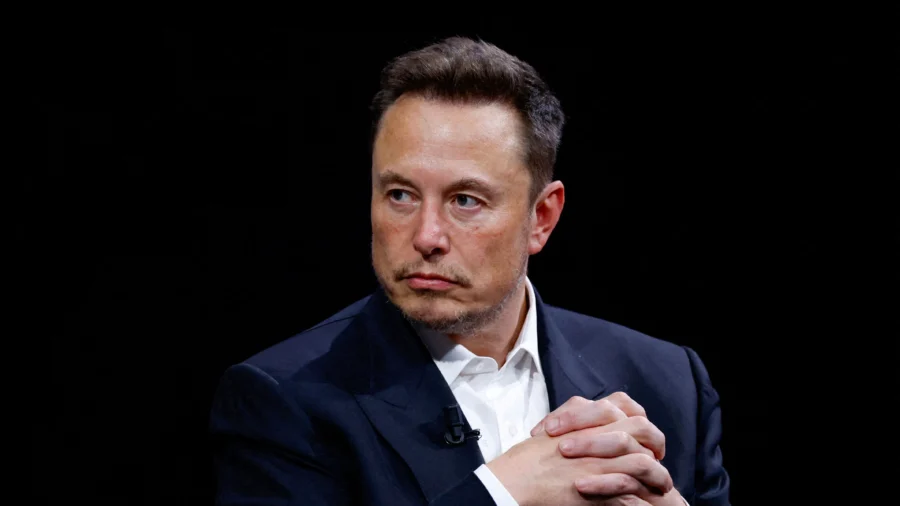Tesla Inc. CEO Elon Musk has said he wants a 25 percent share in Tesla, and that otherwise he would prefer to build products outside of the company, regarding it as an AI and robotics firm rather than an auto company.
As CEO of Tesla and SpaceX and owner of Twitter/X, Mr. Musk currently holds a 13 percent share in Tesla, or approximately 411 million of the company’s 3.19 billion shares, according to its 2023 third quarter financial report.
Mr. Musk said in a post on his social media platform: “I am uncomfortable growing Tesla to be a leader in AI & robotics without having ~25 percent voting control. Enough to be influential, but not so much that I can’t be overturned.”
He also outlined his reasons for seeking to acquire more shares in the company.
“You don’t seem to understand that Tesla is not one startup, but a dozen. Simply look at the delta between what Tesla does and GM. As for stock ownership itself being enough motivation, Fidelity and others own similar stakes to me. Why don’t they show up for work?”
The billionaire executive sold billions of dollars worth of his Tesla shares in 2022, largely to fund his $44-billion buyout of Twitter.
In a 2022 Tesla earnings call, Mr. Musk said that the company’s strongest card in future will be its humanoid robots, and not its cars.
The robot, named Optimus, “ultimately will be worth more than the car business and worth more than full self-driving.”
Currently the electric-vehicle maker generates most of its revenue from its automotive business.
Tesla revealed an Optimus prototype that year with Mr. Musk saying in a social media post at the time that “the point of AI Day is to show the immense depth & breadth of Tesla in AI, computer hardware, & robotics.”
He also promoted Tesla’s Dojo supercomputer to train AI models, which Morgan Stanley analyst Adam Jonas said in September could boost its market value by almost $600 billion by helping to speed up its foray into robotaxis and software services.
Mr. Musk, the world’s richest person, said in a separate post on X that he would be fine with a dual-class share structure to achieve his goal of getting 25 percent voting control, but was told it was impossible after Tesla’s initial public offering.
“It’s weird that a crazy multi-class share structure like Meta has, which gives the next 20+ generations of Zuckerbergs control, is fine pre-IPO, but even a reasonable dual-class is not allowed post-IPO,” he said, referring to the Facebook parent company’s founder, Mark Zuckerberg.
Companies with dual-class structures have two or more types of shares with different voting rights—usually one with greater voting rights for founders or early investors and another for other shareholders with less voting power.
Tesla did not respond to a request for comment.
Mr. Musk is currently facing a lawsuit over his compensation package. Tesla shareholder Richard Tornetta sued Mr. Musk and the board in 2018 and hopes to prove the co-founder used his dominance over Tesla’s board to obtain an outsized compensation package that did not require him to work at the EV maker full-time.
Mr. Musk said on X there was no “feud” with the board over his new compensation package and that the pending verdict was holding back the discussions.
Reuters contributed to this report.

